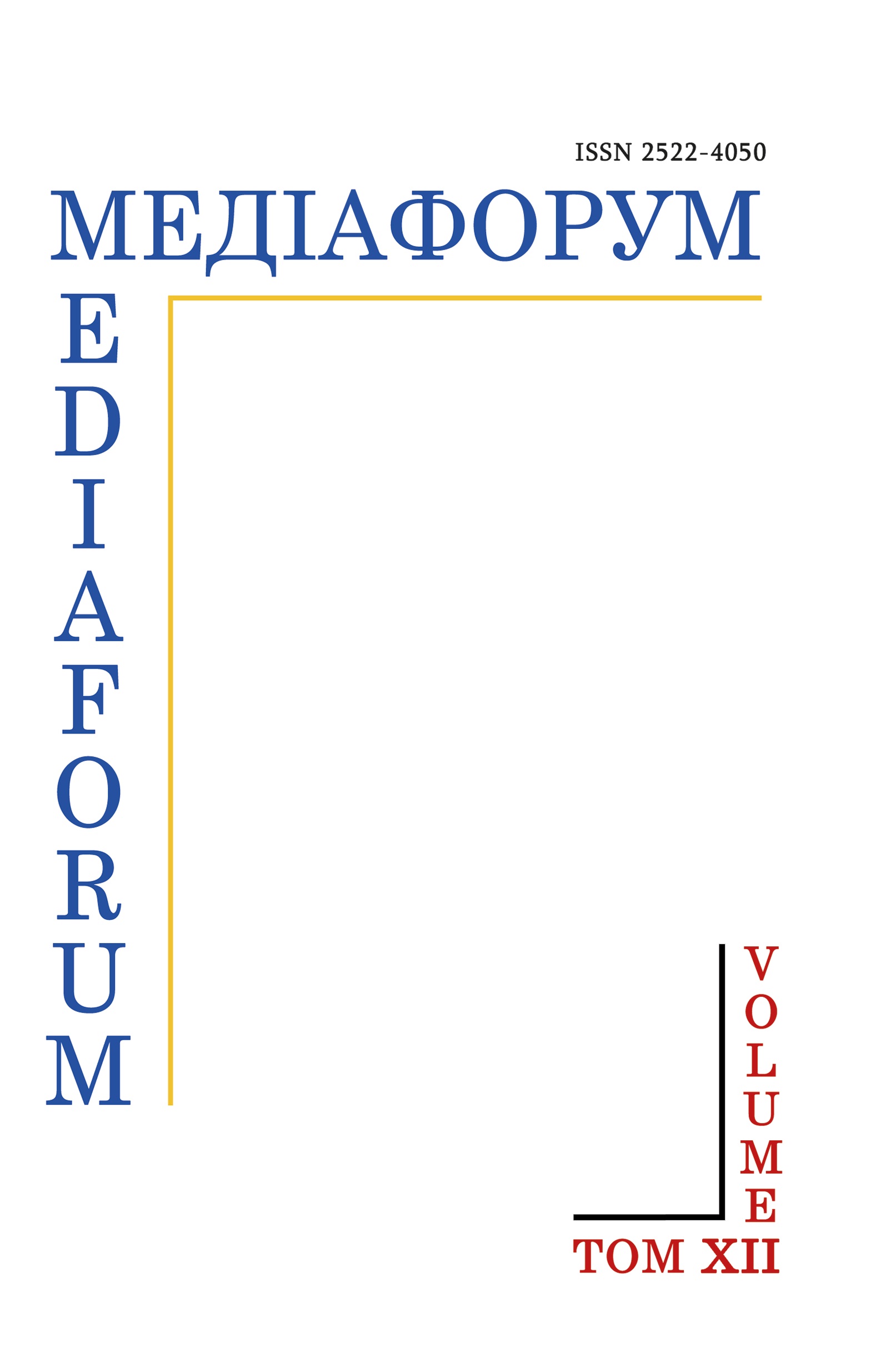Boris Johnson and the “Populist Hypothesis” in the Conservative Party (UK)
DOI:
https://doi.org/10.31861/mediaforum.2023.12.84-94Keywords:
populism, Boris Johnson, charismatic leader, democracy, political ideologyAbstract
One of the key features of the phenomenon of populism is the high level of personalization of political activity, the close connection between the spread and level of influence of a populist movement and the personality of its leader. This feature is not, of course, unique to populism, as charismatic leaders can rise to prominence by advocating value systems that are far from populism of any kind - conservative, for example, or by making a career within influential organizational structures with a strong tradition, such as the church. However, for a populist movement, charismatic leadership is almost always a necessary element. On the other hand, in the context of open, public political struggle, populist techniques and rhetoric become a powerful and sometimes necessary tool.
Downloads
References
Dzhudis, D.B. 2017. Velykyy vybukh populizmu. Kharkiv: Knyzhkovyy dim «Klub simeynoho dozvillya».192 s.
Alexandre-Collier, A. 2015. The Temptation of Populism in David Cameron’s Leadership Style. In Leadership and Uncertainty Management in Politics: Leaders, Followers and Constraints in Western Democracies, ed. A. Alexandre-Collier and F. Vergniolle de Chantal Basingstoke: Palgrave Macmillan: 141–156. https://ndl.ethernet.edu.et/bitstream/123456789/44828/1/281.pdf#page=153
Alexandre-Collier, A. 2020. “From Rebellion to Extinction: Where Have All the Tory Remainer MPs gone?”. The Political Quarterly 91 (1): 24–30. https://d1wqtxts1 xzle7.cloudfront.net/67110228/1467-923X-libre.pdf?1620364617=&response-content-disposition=inline%3B+filename%3DFrom_Rebellion_to_Extinction_Where_have.pdf&Expires=1679339947&Signature=apEI7RclU510KC1xh2wYL7KUAmrAenD-T0w7w8B1~-v4eYv9~X~5-4pVuSA94
Bronk, R. 2020 “The Epistemics of Populism and the Politics of Uncertainty” / R. Bronk, and W. Jacoby. London School of Economics and Political Science, ‘Europe in Question’, Paper № 152. https://eprints.lse.ac.uk/103492/1/LEQSpaper152.pdf
Clarke, J. 2017. “People in This Country Have Had Enough of Experts”: Brexit and the Paradoxes of Populism / J. Clarke, and J. Newman. Critical Policy Studies 11 (1): 101–116. https://www.tandfonline.com/doi/abs/10.1080/19460171.2017.1282376
Feldman, B. 2016. The Conservative Party Review. London. https://conservativehome.com/wp-content/uploads/2016/10/Conservative-Party-Review-Report-1.pdf
Finlayson, A. 2014. “Proving, Pleasing and Persuading? Rhetoric in Contemporary British Politics”. The Political Quarterly 85 (4):428–436. https://ueaeprints.uea.ac.uk/id/eprint/51185/1/Proving_Pleasing_and_ Persuading.doc
Flinders, M. 2019. “Not a Brexit Election? Pessimism, Promises and Populism ‘UK-style.’”. Parliamentary Affairs 73 (Supplement 1): 225–242. https://eprints.whiterose.ac.uk/166481/3/Britain%20Votes%202019%20-%20Flinders%20-%20%20Not%20a%20Brexit%20Election-%20Pessimism%2C%20Promises%20and %20 P opulism%20%E2%80%98UK-style%E2%80%99.pdf
Johnson, B. 2019. Speech to the Tory Party conference, 2 October https://www.theguardian.com/politics/ng-interactive/2019/oct/02/boris-johnsons-speech-to-the-tory-party-conference-annotated
Marsh, D. 2018. “Brexit and the Politics of Truth”. British Politics 13:79–89. https://d1wqtxts1xzle7.cloudfront.net/86033926/s41293-018-0076-x20220516-1-7yr6b-libre.pdf?1652734434=&response-content-disposition=inline%3B+filename%3DBrexit_and_the_politics_of_truth.pdf&Expires=1679339783&Signature=V38Nly9tVAVElSBpGRhHahivbbmkpOFX4IRSfUcF-bKDfA2JJPa3g-XLTIyYt2~n3JemE-YOo-lpZF4icD5QyowzEShUdUzWT9WLhjRrT~7QP4OF5a3M3-HHdfv 2FBYMyihc7tak5FVJ0b
Schoor, C. 2019. Where the Real People Meet the Real Elite. Exploring Mixes of Populism with Elitism [Electronic resource] / C. Schoor // Populism 2:184–206. https://brill.com/view/journals/popu/2/2/article-p184_5.xml?fbclid=IwAR3PTT7ALu2g9iu U3vN81MMWrVVNrhPlp-F-DWv_ONmyh60iIirP4lhvKmw














